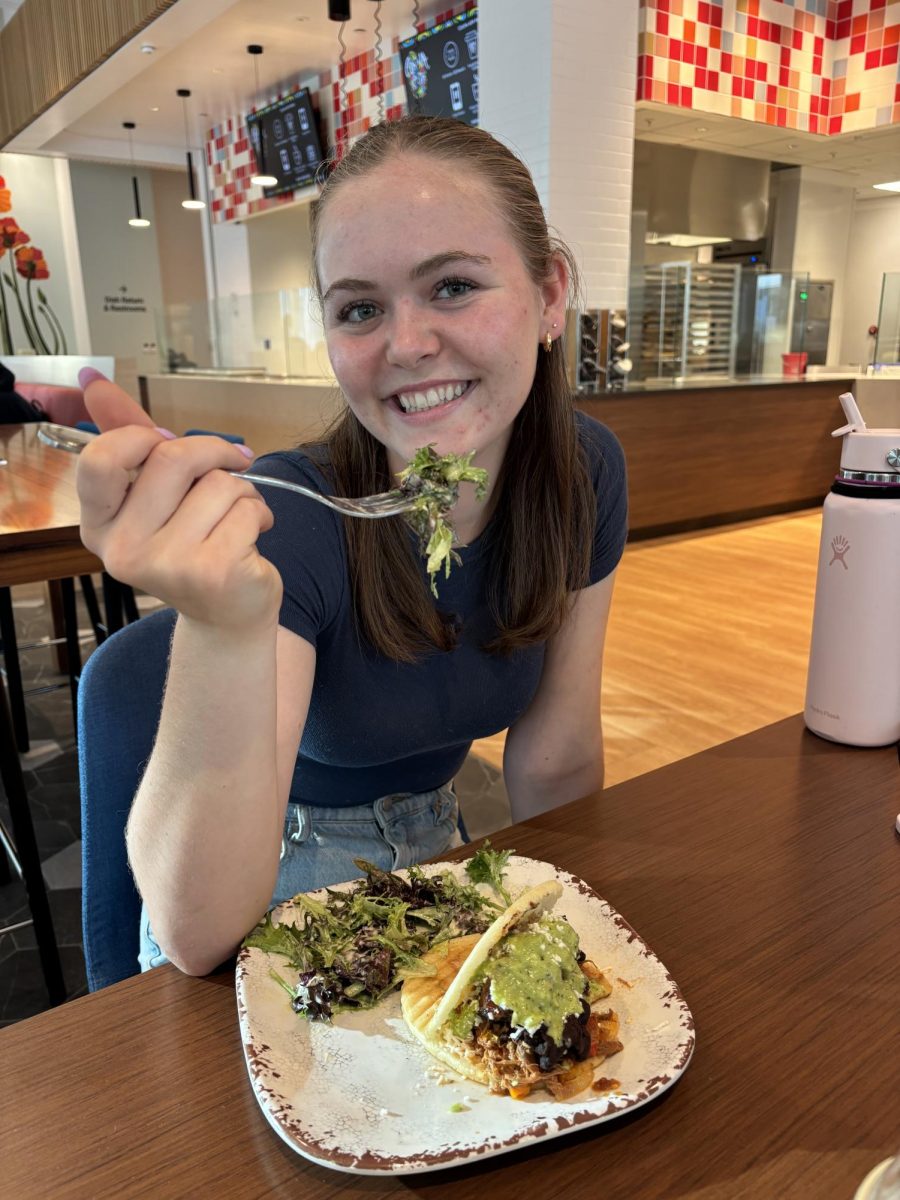Critters in my Cheeseburger?
Hot Lunch Transitions to an all Bug Menu
March 28, 2023
Every day, Patricia Zuniga, a member of the support staff at Pinewood, sees the same stunned look on the faces of students. The grimaces and mutters are constant when she helps serve the daily lunches in the kitchen. With lunch options often topping $8, she can’t help but notice the rate at which student account balances are decreasing. This prompted her to take action.
“I had to help the kids who deserve better, cheaper food,” Zuniga said. “I wrote an email to [Head of Upper Campus Gabriel] Lemmon and Epicurean detailing my proposal to make lunch options healthier and tastier at this school.”
Lemmon was full of praise for Zuniga’s idea.
“I’m going to be honest, the lunch here doesn’t taste like anything,” Lemmon said. “That’s why I always order a daily chalupa with McDonald’s fries.”
Lemmon also said that he’d been in contact with Epicurean, and both sides had decided to upgrade to a new menu.
“From now on, Pinewood will be serving an assortment of insects,” Lemmon said with excitement in his voice.
After those words, no one ate lunch for two weeks. Pinewood students took detours around the school kitchen to avoid contact with the fried bugs. Some of these deviations include students using the turkey, a path around the school, to get to class. Another unorthodox path is on the roof, where four students have already been hospitalized due to their falls. However, after a couple students allowed their hunger to get the best of them, they tried the new $5 Cricket Caviar. The stunningly flavorful experience prompted a school-wide frenzy for the unique meals. A student favorite, the Fly Soufflé, sold out in just a couple minutes. When asked why this new menu was working so well, Zuniga was endless in her plaudits for the revolutionary idea.
“I was hoping this plan would work, and after a while, it did,” Zuniga said. “A quarter of the world’s population is already eating bugs, so I thought to myself: Why don’t we?”
It turns out that eating insects is simply better for the environment. Insect farms produce 96% fewer emissions than livestock farms. They also don’t need to be tended to nearly as much, and they reproduce at a rapid pace, meaning there is essentially unlimited food. Furthermore, they provide the same amount of protein as meat along with maintaining a delicious taste.
Many schools around the world have now introduced dishes such as the ones served at Pinewood, into their daily menus. In a couple years, it is likely mealworms will be our greatest source of protein.







